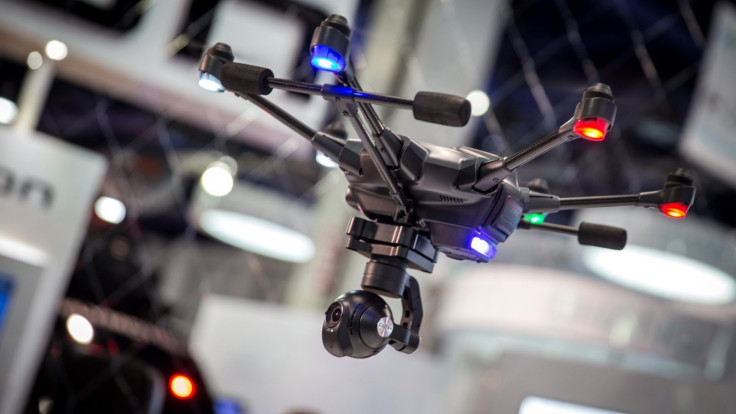US police are now using drones to gather evidence on crime investigations
Police in Maryland have used drones to locate stolen goods and provide evidence for investigations.

Hundreds of police departments across the US are now starting to use hexacopter drones to aid criminal investigations by remotely gathering evidence.
Over 350 police departments are now training officers to become drone pilots and simulating emergency response in a crisis. The police foresee unmanned aerial vehicles (UAV) being used for a variety of purposes, including locating a gunman by flying past windows during a school shooting; photographing and monitoring traffic accidents; or tracking missing people.
One example is Cecil County, Maryland, where the sheriff's department recently used its brand new Yuneec Typhoon H Pro drone to fly over a property where it was suspected that stolen construction equipment was being stored. The police flew the drone over a house in Elkton and on the video feed they spotted the equipment being hidden in the back yard behind the property.
The police took the images and video footage to a judge that night, and within a few hours, were able to get a warrant, arrest the suspects and seize the stolen equipment.
According to Fox News, this is believed to be the first successful use of a drone to solve a criminal case.
"I would say that flight was about as perfect as it could get. It was flawless. The flight went off very well. I think we were in the air a maximum of 10 minutes," said Cecil County Sheriff Scott Adams.
"Got the video and picture we wanted, got back down quickly, were able to get back to the office and review it with our criminal investigators and other state investigators that were here."
A new surveillance threat?
While UAVs have been used in the past to help locate missing and vulnerable people, using drones to solve crimes is new, and the American Civil Liberties Union (ACLU) is concerned about the privacy of regular citizens being jeopardised.
"We don't have any problem with police using drones for common sense specific purposes for accident or crime scene photography or finding somebody lost in the woods or even if they need aerial backup while they are executing a warrant," said ACLU policy analyst Jay Stanley.
"What we don't want to see are drones becoming a tool for pervasive, suspicionless surveillance – basically a way of letting the government look over all of our shoulders, all the time."
It is not clear whether the police in Cecil County first got a warrant before they flew the UAV over the suspect's property, where as a private citizen, the suspect has an expectation of privacy under the law, but when quizzed, law enforcement agencies said that a warrant would be required in order to justify such an aerial search.
© Copyright IBTimes 2025. All rights reserved.






















